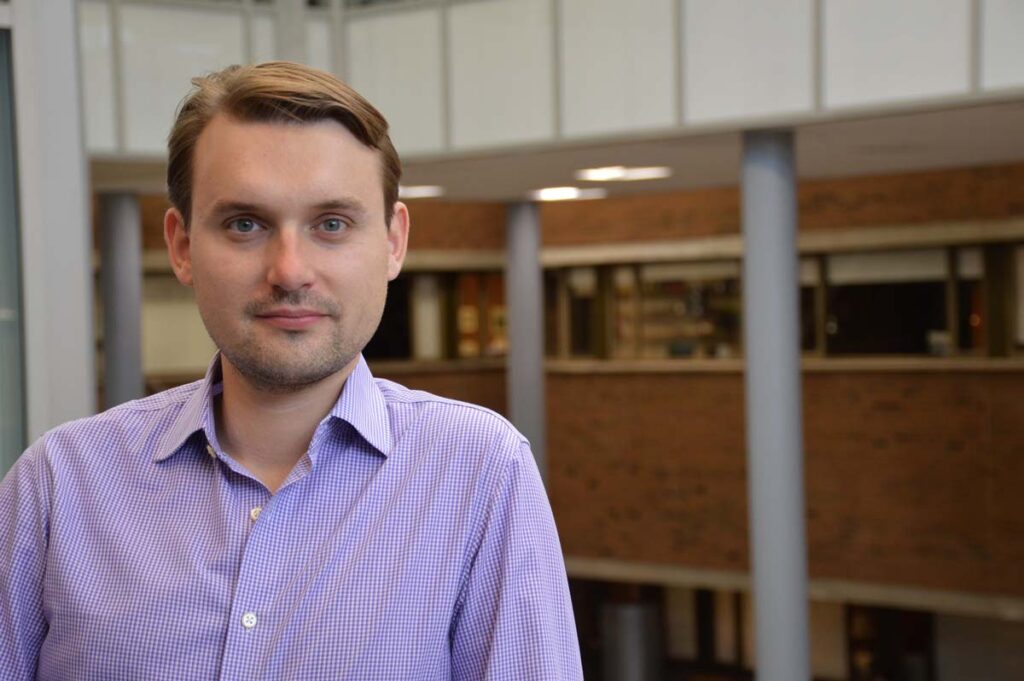
“Biden made a mistake for granting Putin to become engaged in discussion with NATO because, really, the crisis is about Ukraine and not NATO itself. This represents a shift from what should be the main focus of conversation,” said Alexander Lanoszka, Assistant Professor at Waterloo University and Associate Fellow at Council on Geostrategy based in London, England, in an interview with the Georgian Public Broadcaster (GPB).
“Russia is asking for guarantees that NATO does not enlarge eastwards but I think, Russia is after something else, because the leaders of Russia know for well that Ukraine and Georgia face distant prospects of joining NATO, not because of the US or UK policy because these countries want officially those countries (Ukraine and Georgia) to be members, but because of the internal opposition within NATO presumably because of the stance taken by France and Germany. Russia knows this and yet is using that as a pretext for trying to come at a table with NATO countries to talk about the security situation.
Unfortunately, Biden has made a mistake in granting him with this forum to air these, I would say, artificial grievances, because really the crisis is about Ukraine and yet now we are talking about NATO itself, which I think is beside the point. If I would be sitting in Kiev, I will be worried, because this represents the shift from what should be the main focus of the conversation” Alexander Lanoszka said.
Lanoszka also noticed that before and after the Biden-Putin video-conference, U.S. President had a phone conversation with only four NATO member countries Germany, United Kingdom, France and Italy. In his opinion this will make countries like Poland which borders both Ukraine and Russia nervous.
“Observers, like myself, took notice of this because obviously, this is only a group of Western European Countries. Poland is excluded and the Baltic States have no representation here, and they border Russia. In Poland’s case, it’s an EU and NATO country that borders both Ukraine and Russia. Giving Biden’s statement that he made after the videoconference with Putin, he mentioned at least four NATO members will be involved in talks with the United States and Russia, one can presume that those four countries, with whom Biden was already speaking, will be presented at that table.
It’s not clear if there will be a fifth or sixth country involved. Presumably, this could be also under the veto by Putin, because he might not want certain NATO members, like Poland, to be presented. So, countries like Poland and the Baltic States will be very nervous that they don’t have a seat at the table. More particularly they will be nervous that there will be a grand bargain done over their heads, even though their core security interests really are at the stake,” Alexander Lanoszka said.
Talking about Russia’s demands, Assistant Professor at Waterloo University said that, there is no legal basis for giving Russia guarantees that Georgia and Russia will not become NATO members.
“Even if NATO would somehow agree to that demand, and I don’t think that it would, because this is literally made under the gun, and still there is no assurance that Russia would have that future leaders would abide by this agreement. It’s an incredible demand and that would require NATO to depart from the longstanding policy, namely Open door. But more to the point, no leader of NATO finds this agreement to be binding. I don’t even think that Putin himself will necessarily believe in it. We have a record of ripping down agreements struck between Russia and other western countries, not least because of Russian behavior. We can count Bucharest Memorandum, INF treaty and so far. I don’t want to say that treaties are worth only the scope of paper on which they are written, but demand here is unreasonable and unacceptable from the perspective of the allies,” Alexander Lanoszka said.
Alexander Lanoszka thinks that the best answer from U.S. to Moscow would be “to gather all of NATO allies under one shared common understanding of the seriousness of the Russian threat.”
“The best answer was some of provided by Biden himself just a few days ago. Biden said he is trying to gather all of NATO allies under one shared common understanding of the seriousness of the Russian threat and he would consult with all of them on the consistent basis, that NATO structures will not be bypassed here and yet it sounds like Biden is departing from that policy. It felt like he broke with his own approach. It’s important to have NATO unified, to avoid this kind of disagreement about whose gonna be at the table and who’s not. So, I would say Biden’s administration had a decent approach, but it had so much scored into own goal here, but thankfully they still have time and opportunity to do a course correction.” Alexander Lanoszka said.
Listeners could hear the full interview with Alexander Lanoszka in Levan Akhalaia’s radio program World News.






